Heavy cost of price race to the bottom
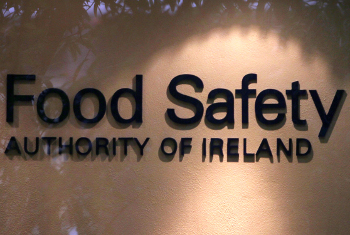
Gillian Hamill looks back at a tumultuous month for the country's beef industry which has seen revelations of a Europe-wide problem emerge, and asks how and why the far-reaching horsemeat controversy could have been allowed to happen
14 February 2013
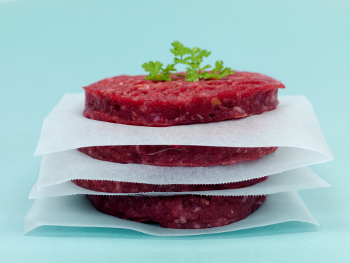 The horsemeat controversy has developed so rapidly over the past month that the flurry of equine puns which overran Ireland’s social networks when the news first broke, now seem like something akin to a lifetime ago. While news reports originally centred around the involvement of Irish producers, the focus has now shifted to reflect a Europe-wide problem which has become no laughing matter amongst the continent’s authorities.
The horsemeat controversy has developed so rapidly over the past month that the flurry of equine puns which overran Ireland’s social networks when the news first broke, now seem like something akin to a lifetime ago. While news reports originally centred around the involvement of Irish producers, the focus has now shifted to reflect a Europe-wide problem which has become no laughing matter amongst the continent’s authorities.
Story still unfolding
At the time of going to print, the industry was still awaiting the results of a second round of tests ordered by the UK’s Food Standards Agency (FSA) on a wider range of beef products. It had been widely reported however that a circuitous route involving several European countries could explain how a Findus Beef Lasagne, produced by French firm Comigel, was found to contain up to 100% horsemeat.
The meat came from Romania through a dealer in Cyprus, working through another dealer in Holland, to a meat plant in Southern France called Spanghero, which sold it to the French-owned Comigel factory in Luxembourg, from which point it entered into frozen meals sold across 16 countries.
Perhaps unsurprisingly, Findus has said it is considering taking legal action against its suppliers over their "failure to meet contractual obligations about product integrity." An internal investigation had already been undertaken by the company which "strongly" suggested the contamination of its products was "not accidental". Spanghero has also said it will issue legal proceedings against its Romanian supplier and claimed it believed it was buying beef.
Irish plants still counting the cost
Although these startling revelations have pulled the focus away from the implicated Irish producers as the villain of the piece, nevertheless the fact that we are not the only country suffering from the fallout will surely come as scant relief. Not least to the employees based at the affected plants, who continue to fear for their jobs.
While the below timeline shows that the series of events comprising the ‘horseburger’ controversy has developed on a daily basis, the one consistent factor throughout each new revelation is the questions they inevitably beg.
Why has this controversy unfolded? It is hard to resist the conclusion that it has been driven by a desire to provide the lowest possible price for consumers. After all, the Tesco Everyday Value Beef Burgers originally flagged by the Food Safety Authority of Ireland (FSAI) carried a price tag of not much more than a euro for eight burgers.
Maintaining the consumer’s trust
The ABP Food Group’s chief boss Larry Goodman was able to claim with some chagrin in a Financial Times interview that "we have been let down" by suppliers. However it was his company’s decision to break the conditions clearly set out by major clients such as Tesco and Burger King, which specified that their products must only use 100% Irish or British beef. The fact that a supplier would be prepared to do this, even at the risk of being discovered by a retailer’s checking procedures, suggests that there was a potentially significant financial motive behind importing an ingredient from elsewhere.
While retailers are only too aware of the consumer’s need for low prices, it seriously undermines their reputations if their products are not 100% as they are labelled. This is clearly the reason why Aldi, Lidl, the Co-op and Burger King decided to terminate their multi-million euro contracts with Silvercrest Foods – without the consumer’s trust, their businesses could not survive.
UCD associate professor of public health Dr Patrick Wall has also revealed the possible financial rewards for criminal elements who may have been involved in falsely labelling horsemeat as beef, before allowing it to enter a complex food chain. Dr Wall said in The Irish Times that dealers stood to make vast profits if they swapped horsemeat for beef. "Beef sells for around €4 a kilo while horse meat costs no more than 90 cent," he said. "So what we are seeing here is fraud on an absolutely huge scale. And the people behind this fraud would have been making enormous sums of money." Worryingly, the chief executive of the World Horse Welfare charity, Roly Owers, has also said there is "huge and widespread abuse" of the horse passport system between Ireland, the UK and France.
Lessons have been learnt
With such potentially colossal monetary rewards at stake, it is likely that more revelations surrounding the horsemeat controversy will emerge in the coming weeks and months. Unfortunately, we can only hope that these do not include any findings that the horsemeat used by Findus was injected with the veterinary medicine phenylbutazone – which renders horses unfit to enter the human food chain. At the time of going to print, this had not been revealed.
Another sincere hope is that crucial lessons have been learnt from this controversy that will enable Ireland to maintain our excellent reputation as a food island. The ABP Food Group’s Paul Finnerty has said the company is "determined to ensure that this never happens again," and to this end, has introduced far-reaching measures including a "total management change" at Silvercrest and the establishment of "comprehensive DNA testing procedures."
If there is any consolation for Irish farmers and producers, it may well be that our food safety authority was the first to implement DNA testing. The consumer deserves to know that the product they are eating is exactly what it has been labelled as and any procedures or tests that can ensure this, are a major positive for our country. Hopefully this is the legacy for which Ireland will be remembered throughout the continuing horsemeat controversy rather than any more unsavoury aspects of the whole sorry Shergar-saga.
TIMELINE
Tuesday 15 January
-Food Safety Authority of Ireland (FSAI) announces 10 out of 27 beef burgers have tested positive for both/either porcine and equine DNA. Tesco Everyday Value Beef Burgers are found to contain 29.1% equine DNA.
-FSAI says the beef burgers containing horse DNA were produced by two processing plants (Liffey Meats and Silvercrest Foods) in Ireland and one plant (Dalepak Hambleton) in the UK. They were on sale in Tesco, Dunnes Stores, Lidl, Aldi and Iceland.
-British Prime Minister David Cameron orders an investigation into the contamination of Irish-produced beef burgers containing horse meat.
– Speaking on RTÉ’s evening news, Minister for Agriculture, Food and the Marine, Simon Coveney, says an investigation is looking into the production of beef burgers containing horsemeat. He says it is focusing on imported ingredients.
-Department of Agriculture staff take samples from the Silvercrest Foods plant based at Ballybay, Co Monaghan (a subsidiary of ABP Foods) to check if its burgers still contain horse DNA.
-Bord Bia contacts overseas customers to reassure them about the DNA findings.
Wednesday 16 January
-Newspapers report Liffey Foods has withdrawn from sale all products identified by the FSAI tests and that Silvercrest Foods said that although the products pose no risk to public health, it has taken "immediate action to isolate, withdraw and replace all suspect product".
-It’s reported that Fianna Fáil leader Micheál Martin questions in the Dail why Minister for Agriculture Simon Coveney was only told on Monday of the findings of tests carried out on burger meat in November and again in December, both of which proved positive for horse meat content.
-In response, Minister for Public Expenditure Brendan Howlin insists that Ireland has the best oversight system in the world for food production.
-The news spreads internationally, with headlines such as that of The LA Times website reading: "Food FYI: Horse meat found in burgers sold in Ireland, UK".
-A European Commission spokesperson says that because the discovery was not a public health issue, its role is limited.
-Fine Gael MEP Mairéad McGuinness calls for an EU-wide investigation into the presence of horse meat in burgers. She says she has written to EU health commissioner Tonio Borg asking him to investigate if the findings might indicate an EU-wide problem.

ABP Food Group’s Larry Goodman criticises ‘tabloid sensationalism’
Thursday 17 January
-Traces of horse DNA are found in a sample of imported ingredients taken at the Silvercrest Foods plant on 15 January.
-Silvercrest says it is temporarily suspending production at the Ballybay plant until the matter is resolved. The group says it will continue to pay all 112 employees.
-The Irish Farmers Association (IFA) says it is essential that the Department of Agriculture quickly identify the precise source of the equine DNA.
-The Irish Times reports nine more beef burgers from a total of 13 tested by the Department of Agriculture at Silvercrest in Co Monaghan have tested positive for traces of equine DNA; they are sent to Germany for further investigation
-Larry Goodman, founder and executive chairman of ABP Food Group, questions the validity of DNA tests on his burgers by regulators and criticises what he called tabloid sensationalisation of the issue.
Monday 21 January
-Minister Coveney says no traces of horse DNA were found in samples of beef burgers taken from Liffey Meats plant in Ballyjamesduff, Co Cavan, the previous year. The FSAI had previously found traces of horse DNA of less than 0.1% in three samples of burgers produced by the plant late last year.
Tuesday 22 January
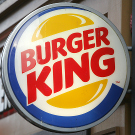
Burger King switches supplier
-The ABP Food Group confirms that more than 10 million burgers withdrawn from supermarkets will be destroyed.
Wednesday 23 January
-Burger King announces it has switched to an alternative supplier to ABP’s Silvercrest plant for its British and Irish restaurants as a "voluntary and precautionary measure".
Friday 25 January
-Fianna Fáil spokesman on agriculture Éamon Ó Cuív accuses Simon Coveney of "drip-feeding" information on the progress of the government’s investigation.

Minister for Agriculture Simon Coveney says Polish ingredient ‘likely source’ of horsemeat
Saturday 26 January
-Test results return from Germany and Minister Coveney confirms Polish ingredients as the likely source of horse meat found at 29.1% in a Tesco burger made by Silvercrest Foods.
Sunday 27 January
-Minister Coveney says Poland’s authorities in Poland are to begin an investigation into how traces of horse DNA found its way into burgers made by Silvercrest Foods.
Monday 28 January
-According to media reports, the Agriculture Minister said that the Polish product identified as the most likely source of the horsemeat in beef burgers was supplied to Silvercrest Foods for nearly a year before the crisis broke.
-The Agriculture Minister says the Polish material was a beef product made from low-value cuts and trimmings which was sourced from multiple slaughtering facilities. It was imported in frozen blocks.
Wednesday 30 January
-The Co-operative Group, Tesco and Aldi cancel their contracts for frozen beef burgers from the Silvercrest plant.
-Reports emerge that Spanish consumer organisation OCU has found horse DNA in two beef burger products sold in Spain in the supermarket chains Eroski and AhorraMas.
-Authorities in Warsaw decline to name Polish facilities under investigation but say ABP Food Group’s only plant in Poland, based in Pniewy, near Poznan, was not on the list.
-ABP Group says original decision to destroy implicated burgers has been put on hold following discussions with various experts – and may be sold to pet food producers.
-Authorities in Warsaw take issue with the Irish certainty that horse meat found in Silvercrest burgers originated with Polish suppliers.
-Poland’s veterinary inspectorate said it would need more time for tests into the Irish claims because additional "cross-checks" were taking place in Ireland after "initial tests were a little wrong". However Irish officials disputed this claim, saying no cross-checks were taking place and they remained confident that Poland was the source of the problem.
-The chairman of the UK’s Food Standards Agency (FSA), Jeff Rooker tells a House of Commons inquiry that the Food Safety Authority of Ireland (FSAI) failed to give its British counterparts proper notice of the discovery of horse meat in burgers
-In a statement, the ABP Food Group [parent of Silvercrest] said it had "developed a very strong business – based on trust. We have let our customers down in this incident and we apologise for this."
-The Co-operative Group has announced that independent tests of its own-brand burgers supplied by Silvercrest had found traces of less than 1% horse DNA in three samples and 17.7% in one sample.
-Tests carried out by Burger King on burgers produced by the Silvercrest plant come back negative for horse DNA, but the company will not be renewing its contract.
Friday 1 February
-The Irish Times reports EU commissioner for health and consumer policy, Tonio Borg has said burgers labelled to suggest beef where other species of meat were present were "misleading and breaching EU legislation".
-Authorities in Poland have said Ireland’s naming of Poland as the source of horse meat in supermarket beef burgers was unacceptable and motivated by commercial concerns.
– Jaroslaw Naze, deputy head of the national veterinary inspectorate. DNA test results in Poland showed no signs of horse meat in samples from five production facilities sending beef to Ireland, with results from a sixth due on Monday.
Sunday 3 February
-Reports emerge that the British Ministry of Justice (MoJ) has suspended 3663 – a supplier of meat to prisons – after discovering that food products may contain traces of non-Halal meat, despite being sourced from McColgan Quality Foods Limited, which is a properly Halal-certified supplier.
Monday 4 February
– The Garda Bureau of Fraud Investigation (GBFI) and the Department of Agriculture’s special investigations unit (SIU) are asked to identify the source of the mislabelled meat.
-Major retailers and suppliers meet the UK Food Standards Agency (FSA) to work out how to prevent food becoming contaminated and entering the supply chain.
-Production is suspended at the Rangeland Foods plant in Castleblayney, Co Monaghan, after tests reveal that a raw material ingredient it imported from Poland contained 75% horse meat.
-A statement released by the Department of Agriculture says the raw material in this case was imported through a meat trader based in Ireland.
-Polish companies suspected of involvement in Ireland’s horse meat scandal offer to send samples from their factories to Dublin for further tests.
-Although Rangeland Foods supplies product to Supermac’s, the latter’s managing director Pat McDonagh said the product in question bore no relevance to Supermac’s burgers, which were "100%, fully traceable back to the farm and DNA tested to prove that it is 100% Irish beef".
-Addressing the Oireachtas Committee on Agriculture, Minister Coveney says the investigation is now trying to establish if there had been any fraudulent or criminal activity but he has to be careful not to prejudice the outcome of the investigation.
-The Agriculture Minister also criticises "bad management practices" at Silvercrest Foods.
-Fianna Fáil spokesman on food Éamon Ó Cuív calls for an independent investigation into the ongoing horsemeat controversy.
Tuesday 5 February
-Addressing the Oireachtas agriculture committee hearing, the FSAI’s Professor Alan Reilly said it had uncovered poor practice within the burger industry. He said it remained to be seen whether this was due to "carelessness, collusion or deliberate fraud".
-A joint team of Department of Agriculture special investigators and gardaí raid the home of Co Monaghan meat trader Martin McAdam.
-Martin McAdam’s company, McAdam Foods, imported Polish beef product which was found to contain up to 80% horse DNA, which it then sold to Rangeland Foods.
-McAdam Foods said in a company statement that it was "shocked and astonished" to hear the product contained horsemeat.
Wednesday 6 February
-Findus recalls its Beef Lasagne, produced by French firm Comigel, because it is found to contain up to 100% horsemeat.
-Another Comigel customer Aldi, withdraws its Today’s Special frozen beef lasagne and Today’s Special frozen spaghetti bolognese.
Tesco withdraws its frozen Everyday Value spaghetti bolognese because it was produced at the same site as the Findus beef lasagne.
-The Irish Times reports Fianna Fáil leader Micheál Martin has called for an independent inquiry into horse meat in beef burgers. Mr Martin said the Department of Agriculture had stated that no report would be published following its investigation.
-Reports emerge that companies providing DNA testing services have reported a sharp increase in trade since the horse meat controversy began, with Irish DNA testing company IdentiGEN reporting "unprecedented" demand.
-Rangeland Foods resumes production at its plant in Castleblayney, Co Monaghan after getting the go-ahead from the Department of Agriculture.
-Rangeland Food says the contaminated frozen beef product had not entered the food chain. The beef was supplied by McAdam Foods who in turn received it from a UK meat trader. The Department of Agriculture’s special investigation unit and gardaí continue to investigate the matter.
Thursday 7 February
-Jaroslaw Naze, deputy head of Poland’s General Veterinary Inspectorate, says investigations have still not uncovered any evidence backing Irish claims that Poland was the source of horsemeat.
-He insists that Ireland hands over more documentary evidence, including of labels on the suspected meat supplies, so that Polish officials can complete their own investigation.
-UK Food Standards Agency chief executive Catherine Brown said it was demanding that all UK food businesses test their beef products for the presence of significant levels of horse meat and provide the results to the FSA by the following Friday.
Friday 8 February
-The FSAI releases a statement saying it had been in contact with Findus since the previous night to establish which retailers had been supplied the product.
-The FSAI says Tesco withdrew the affected product from Irish shelves on Wednesday, but did not notify the organisation. It adds that it is contacting the retail trade to ensure this product is withdrawn from sale.
-FSAI chief executive Professor Alan Reilly said it is unknown if these products pose a food safety risk, as tests have not been undertaken in the UK to establish if the veterinary medicine phenylbutazone is present in the product.
-Aldi announces that tests show two of its ready meal ranges produced by Comigel, Today’s Special frozen beef lasagne and Today’s Special frozen spaghetti bolognese, contain between 30% and 100% horsemeat. The company says it feels "angry and let down" by the supplier
Saturday 9 February
– Findus confirms it is considering legal action after some of its beef products were found to contain horse DNA, over its "suppliers’ failure to meet contractual obligations about product integrity."
-"The early results from Findus UK’s internal investigation strongly suggests that the horsemeat contamination in [its] beef lasagne was not accidental."
– Reports emerge that the French ministry of agriculture has confirmed that it has launched an investigation into how horsemeat ended up in beef meals produced by Comigel. A government spokesman said that they consider the issue a matter of criminal fraud.
Monday 11 February
-Media reports reveal that according to France’s junior minister for consumer goods, Benoit Hamon, horsemeat travelled through a supply chain including companies from Romania, Cyprus, France and the Netherlands.
-Tesco announces it had found horse DNA exceeding 60% in some of its own-brand frozen spaghetti bolognese meals withdrawn from stores the previous week.
-Minister for Agriculture Simon Coveney announces manufacturers of all Irish processed meat products will have to carry out DNA testing under a new regime.

Michael Murphy, director of markets, Bord Bia
A long-term positive?
When the horsemeat controversy first broke, there were serious concerns expressed about the impact the news would exert on Ireland’s reputation as a food producer. Especially considering that the country’s food and drink exports are thriving, surpassing €9 billion in 2012 for the first time, with meat and livestock being the best performing category, accounting for €3 billion. ShelfLife spoke to Bord Bia’s director of markets, Michael Murphy, on 22 January to hear how the food board was managing the controversy
Since the Europe-wide nature of the horsemeat controversy has been revealed, with contaminated meat reported to have originated in Romania, UCD associate professor of public health Dr Patrick Wall has said the FSAI’s role in uncovering the presence of horse DNA in products labelled as beef should be acknowledged.
Dr Wall said that although the authority had been criticised in some quarters in the early stages of the crisis it had "uncovered a huge, Europe-wide scam. If it had not been for the FSAI this could have gone unchecked for years and it has set the standard others across Europe will have to follow."
Identifying the problem
This was a view already held by Bord Bia’s Michael Murphy late last month. "I think in the longer term, this will be turned into a positive that our government mechanisms have identified a problem and we’re dealing with that problem which gives [importers] confidence."
"The fact that the Irish authorities are very diligent, putting such effort into putting the public and the consumer first, that is recognised…that all plays very well for the reputation of the industry so I think our adherence to very strict controls and being open actually works in our favour."
While some media outlets had accused Bord Bia of playing down the controversy, Murphy maintained: "We’re not seeking to play it down but seeking to put the facts out there, because the coverage has very much largely been limited to Britain and Ireland."
ShelfLife asked if the controversy was being driven by the consumer’s desire for lower prices. "I think there’s no doubt that there’s very significant pressure on the marketplace for consumers to get cheaper food; that’s always been there," said Murphy. "But I think it’s important that the regulatory controls within a food production economy like ours are to the highest standards and are there to correct any potential abuses."
Providing open and transparent information
Speaking of Bord Bia’s efforts to contact international clients and reassure them following the test results, he said: "I think firstly we’re starting in terms of trying to understand how it has impacted on [the markets] and we’ve some research ongoing in Britain and Ireland among consumers within that phase. I think it’s really about ensuring that any concerns raised are satisfied in a transparent and open manner both with consumers and buyers. In the longer term, we’ve got very ambitious plans around Ireland and positioning the Irish food and drink industry as the model for the most sustainable and high quality place to produce food in the world. We’re very much working along with the industry in achieving that so we have a lot going for our industry and we believe we have a lot of very positive things that we can communicate to both buyers and consumers around the world; we’ve a good story."
Ireland’s emphasis on sustainability, highlighted through the Origin Green programme and the ambitious Harvest 2020 programme are major positives for the country’s food and drinks exports says Murphy, as is the fact that we’re "in an era of expansion. There is very significant global demand for food and drink and at the moment, particularly for our dairy industry which is planning for very significant expansion for the first time in about three decades."



 Print
Print

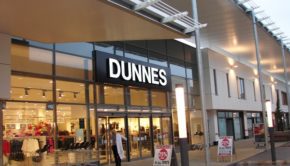
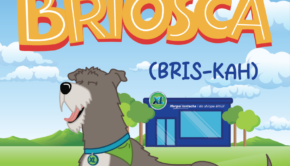
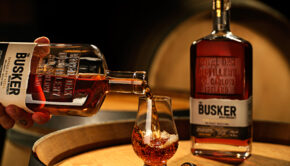


Fans 0
Followers